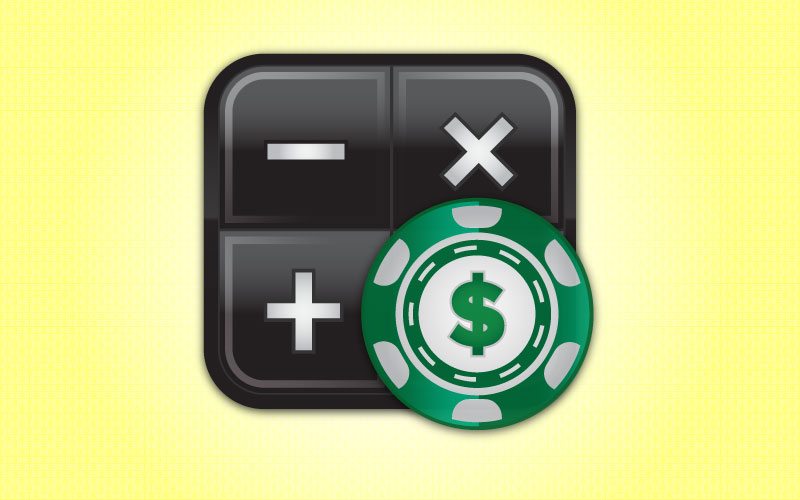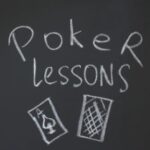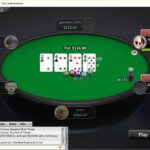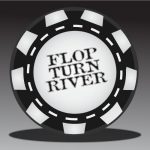I have just read a thread in which people said “poker is not all about maths,” “luck is a factor in poker,” “it is not always right to take +$EV decisions.”
I am now going to show that everything in poker can be expressed mathematically, and prove that those people who say poker is not all about maths are incorrect.
Luck does not exist. Each poker “event” has a likelihood based on some measure of prevision or “probability” which is in turn based on your own judgments about the likely ranges of your opponents hands (from reads and bet sizing) and more deeply about your own judgments of the mechanics of the game.
If you believe in this mysterious “luck” idea, then in order to be coherent you must alter your probability of winning a showdown. To make this concrete I will use an example from another thread:
I have AK and I believe my opponent has a pocket pair. He has gone all in after people limped and I have raised. I believe that the deck has been shuffled well so that as far as I can tell any card which I have not seen is equally likely to come down on the board. I have made a coherent probability statement so now I can work out my EV for the decision to call and the decision to fold, and take the decision with the maximum EV. In the thread the call was the right choice.
However believing in some mystical force called luck changes my statement that each card is equally likely to come out, and that in some way my aces and kings are not as likely/more likely to appear than the other cards. I must now respecify my probabilities and use those to work out my equity for the hand. If that turns out to be -$EV then I should fold. But I fold ONLY because by believing in the mystical force luck I have changed the nature of the game in some sense.
But what of the argument that $EV is not the only factor?
Well it is not! But all decision making is mathematical. You have a reward, which in the case of poker is money. You specify your utility for that reward, i.e. a measure of how much you prefer one amount over another amount. Then you make the decision that maximizes your expected utility. This completely specifies the problem because not choosing this optimal decision means you didn’t really believe your utilities in the first place and is therefore incoherent.
Clearly then $EV is just a specific case of expected utility based on the assumption that we prefer, for example, $2 twice as much as $1. You can’t just use $EV all the time and think you are making the right decision though!! You have to be careful:
For example, I have only $100 in the world. Without it I can’t eat and will starve for a whole week. Someone offers me to toss a coin for my $100 and says he will give me $210 if it is heads and moreover that I can use any fair coin and toss it myself (so that he has no influence on the game.)
My $EV is clearly $155 for playing and $100 for not playing, so based on that I should play. But would you knowing you’d starve if you lost????? In this case my utility for money is not linear. I need my $100 so badly that it dominates the function. Asymptotically, as my wealth increases and losing $100 does not matter, then I always take the bet, as my utility tends to $EV.
This has deep meaning for poker. If you are not properly rolled, then many decisions that are +$EV are incorrect for you. Which is the mathematical reasoning behind playing with a proper bankroll, because if you do then your utility for money (in your roll) is proportional to the money itself and so $EV decisions make sense.
So if you ever worry about the amount of money you lose if you make the call (and this includes thinking that “later I’ll win more if I save this”), that is the same as playing scared and means that, for you, maximizing $EV is not a coherent way of making your decisions.
If maximizing $EV is not optimal for you (and mathematically it really doesn’t have to be and in many cases shouldn’t be), then the decision making advice on this forum is incorrect for you. Only with a proper bankroll, which must be treated as if infinite (in comparison to the stakes you play) so that your utility for money is completely linear, can the advice on here (and in nearly any book) make any sense.
If you are arguing for not taking an edge, you are then making a subjective statement equivalent to, “The money I’m risking here is too much for me.” Thus posters on this forum can only tell you that you should stop playing the stakes you are if you want the mathematics of poker to make sense.
We would be wrong to say that you should always maximize your $EV, because as I have shown this may not make sense for you and your preferences about money. Clearly, however, we cannot give any advice to you either if your preferences are not completely specified to us. Furthermore, if you do not subscribe to a linear utility function for money in your bankroll then you will not make as much money long term as someone who does.
If there is any decision in poker that is not mathematical, I challenge you to find it!…
Click here to continue reading the full thread, Poker is Totally Mathematical.
Submit your review | |








